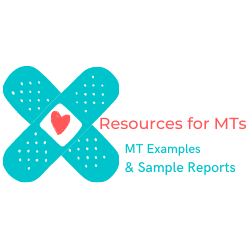DATE OF SERVICE: MM/DD/YYYY
TIME SEEN:
This child psychiatric evaluation started at 3:30 p.m. and ended at 4:30 p.m.
IDENTIFYING INFORMATION:
The patient is a (XX)-year-old boy. He is in kindergarten and lives with his mother and his three other siblings.
SOURCE OF INFORMATION
Mother and child intake summary at this facility.
PRESENTING COMPLAINT:
The patient reported on time for this assessment. He was accompanied by his mother and sister. This is the patient’s first formal psychiatric evaluation. He was diagnosed with pervasive developmental disorder at 3 years of age by a neurologist. He is reported to be aggressive and violent, gets angry easily. He bangs his head on the floor or the wall, tries to stab himself with various things, rocks in the chair, among other things. He has difficulty staying seated. He is distractible, disruptive and impatient. He has been written up on the school bus at least thrice. He has lots of disorderly conducts like spitting anywhere and everywhere all the time. Because of his hyperactivity, he tends to be accident-prone. He gets into time-out every day at school. Consequences of his actions do not seem to modify his behavior. The patient has never been on any psychotropics. Mother reports that his behavior has been progressively worsening. He is not reported to have any symptoms suggestive of hypothyroidism or hyperthyroidism.
PAST PSYCHIATRIC HISTORY:
The patient has used extensive psychiatric and other intervention services as follows. He has received early intervention services. He received BHRS and also received resource coordination. As mentioned earlier, he was diagnosed with PDD and sensory integration problems when he was 3 years old.
PAST MEDICAL HISTORY:
The patient was born with a congenital heart defect. He also had several seizures on multiple occasions and has received EEG and sleep study, both were found to be within normal limits.
ALLERGIES:
None.
DEVELOPMENTAL HISTORY:
Mother was (XX) years old at the time of pregnancy; it was unplanned. Throughout the pregnancy, she was in and out of the hospital for multiple medical problems related to pregnancy, including dehydration, anemia and premature contractions. The patient was born one month preterm. Apparently, it was a prolonged labor and the patient had fetal distress and forceps was used during delivery. The patient had developmental delays in the form of crawling at (XX) months, walking at (XX) months, and talking at 4 years of age. The patient did not like to be held as a baby and was fed in the crib. He had extreme stranger anxiety. He never slept well, even as a newborn, and even now, is up until 2 a.m. He has received occupational therapy, physical therapy and speech therapy because of various developmental delays and speech problems.
SOCIAL HISTORY:
The patient is the fourth of four children born to his mother. He has two sisters and one brother. Parents recently separated because of frequent arguments between them. Father maintains regular contact with all the children. No physical or sexual abuse reported.
FAMILY PSYCHIATRIC HISTORY:
All his siblings have ADHD. Mother states that the father probably has bipolar affective disorder. Mother reports that multiple family members on the father’s side have psychiatric problems. She states that there has been a successful suicide, attempted suicide and homicide on the paternal side. Mother further adds that on the father’s side, multiple members have received inpatient treatment at psychiatric facilities. She also states that a lot of members on the father’s side are drug and alcohol involved.
The patient is appropriately dressed and groomed. He is cooperative and communicative. He maintains eye contact when spoken to. He is easily distracted. Psychomotor activity is noticeably increased. No involuntary movements. His speech is spontaneous with normal volume and tone. His affect is bright and full range. He does not appear to be responding to any abnormal perceptions or delusions. His judgment is age appropriate.
DIAGNOSES:
Axis I: 1. Attention deficit hyperactivity disorder.
2. Pervasive developmental disorder by history.
Axis II: Deferred.
Axis III: Congenital heart defect.
Axis IV: Deferred.
Axis V: Global assessment of functioning between 50 to 60.
RECOMMENDATIONS:
The patient does not pose any imminent danger of harming himself or others; therefore, he can be followed as an outpatient. The patient is not on any medications at the moment. He should be started on Adderall 1.25 mg t.i.d. If he is able to tolerate the medication, then it can be increased to 2.5 mg t.i.d. Side effects were reviewed with the mother. The patient should be provided with a RN. The patient should continue to receive treatment. The patient should return for reassessment on MM/DD/YYYY at 5:30 p.m.
